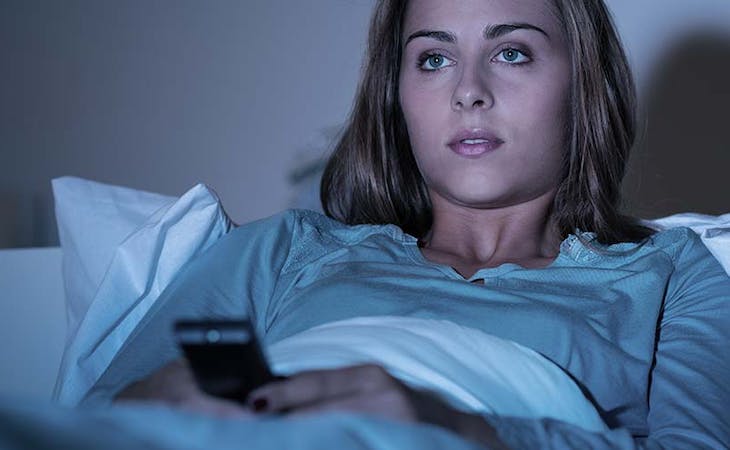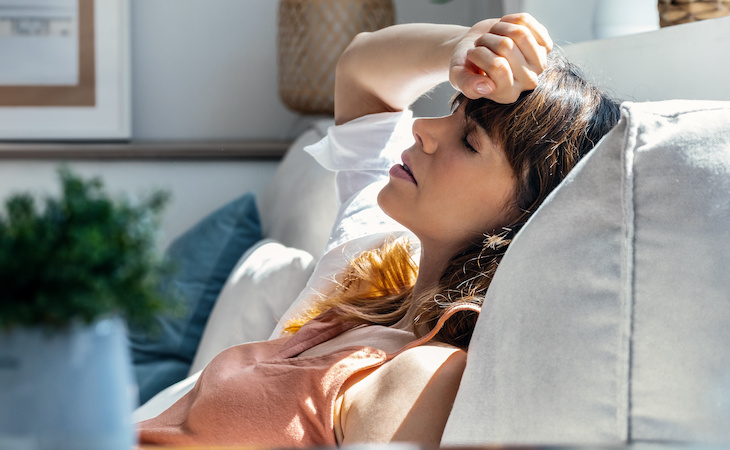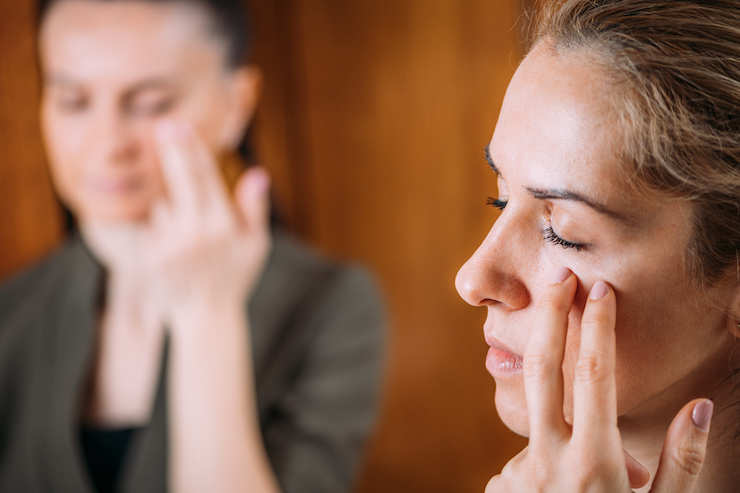Ahh, awards show season! With the Golden Globes and Grammys down, now’s the time to cram in all of this year’s Best Picture nominees before the Oscars arrive on February 9th. For many of us, that means lots of late-night binge-watching ahead.
Of course, there is one downside of catching up on the year’s best movies: A whopping 88% of us admit to losing sleep because we’re glued to the screen, finds a recent survey from the American Academy of Sleep Medicine (AASM).
How binge-watching affects sleep
“Watching TV at night is as American as apple pie,” says Michael Breus, PhD, clinical psychologist, fellow of the American Academy of Sleep Medicine, and author of The Power of When: Discover Your Chronotype. “Three or more hours of staring at the flickering box—often, with phones and tablets on as well—isn’t the worst health habit by far. But we all know that too much of anything isn’t good for you, and that includes TV.”
We’ve all been there: One episode becomes just one more, and hours later, Netflix is asking if you’re still watching (umm, yep!). The problem: When streaming services compete with Z’s, you go to bed later, your sleep quality goes down, and insomnia and fatigue go up.
This is in part due to how riled up your brain gets when you’re sucked into a captivating plot, according to a 2017 study in the Journal of Clinical Sleep Medicine. Furthermore, the blue light your TV or device emits may also trick your body into thinking it’s daytime, which in turn suppresses the production of melatonin (the hormone that typically primes your body for shut-eye), explains sleep expert Lina Velikova, MD.
How to keep binge-watching from ruining your sleep
However, you don’t have to completely give up your evening binge-watching habit for a good night’s sleep—you just have to watch responsibly. So, before you plop down on your couch for that pre-Oscars movie marathon, here are a few ways to binge-watch without ruining your sleep:
Prep for bed first
Rather than saving your bedtime routine for after your binge-watching session, put your pajamas on before you reach for the remote (this is one point where having your TV in your bedroom actually pays off). “This way, you don’t have the additional stimulation of washing your face, brushing your teeth, and being exposed to bright light in the bathroom before you try to sleep,” explains Nicole Issa, PsyD, a licensed clinical psychologist and founder of PVD Psychological Associates in Providence, Rhode Island.
Dim the screen
To prevent bright light from disrupting your body clock (and making you feel alert rather than sleepy), binge-watch movie theater-style. Dim the lights, close your curtains, and limit your blue light exposure by putting your TV or device on night mode, suggests Breus.
Choose what to watch wisely
Naturally, there’s a big difference between winding down with a film like Little Women versus a thriller like The Joker or Parasite. If you know a movie or show will be disturbing or anxiety-inducing and as a result, disrupt your sleep, save it for the weekend, says Issa. Alternatively, you can bring yourself back to baseline after watching something exciting by following it with something light, like old favorites that don’t require much investment or funny Youtube videos.
Schedule a stopping point
To give yourself some time to settle down, aim to turn off the TV at least 30 minutes before bedtime, says Velikova. To stick with your cut-off time, make a plan for how many movies or episodes you can fit into the evening. This will allow you to feel more in control of what you’re doing and prevent all-or-nothing thinking like, “It’s already 1:30 am so I might as well finish the season,” explains Issa. A set watch limit also helps you avoid the bedtime anxiety of counting down the hours of available sleep which can, ironically, contribute to insomnia, she says.
Leave time to wind down
To boost your sleep quality post-binge session, spend 30 minutes or so on relaxing activities as your body begins to produce sleepytime melatonin, says Velikova. Unwind with some light reading, soothing herbal tea, deep breathing, or guided meditation. For meditation, an app like Headspace can lead the way, though the most important thing is to find a style and voice that resonates with you—and there are plenty to choose from on podcasts and Youtube as well, says Issa.
Binge-watch outside of bedtime
If late-night Netflix marathons are regularly putting a dent in your sleep schedule, it might be best to find other times to watch the shows you enjoy. “The time-wise trick is to do your TV-binging during daylight hours, when the blue light won’t keep you up,” says Breus. What to do: Call up your friends, schedule a go-to time to watch your favorite show together (Sunday afternoon, perhaps?), pop some popcorn, and enjoy.
But don’t beat yourself up if you binge-watch before bed every once in a while
All that being said, many of us will likely stay up long past bedtime for the Oscars, and that’s OK. On special occasions, try not to get frustrated or anxious about being up too late (after all, the stress might keep you up later!). Instead, just enjoy your guilty pleasure while you’re engaging in it, says Issa.
Hungry before bed? Try these late-night snacks to help you sleep.








